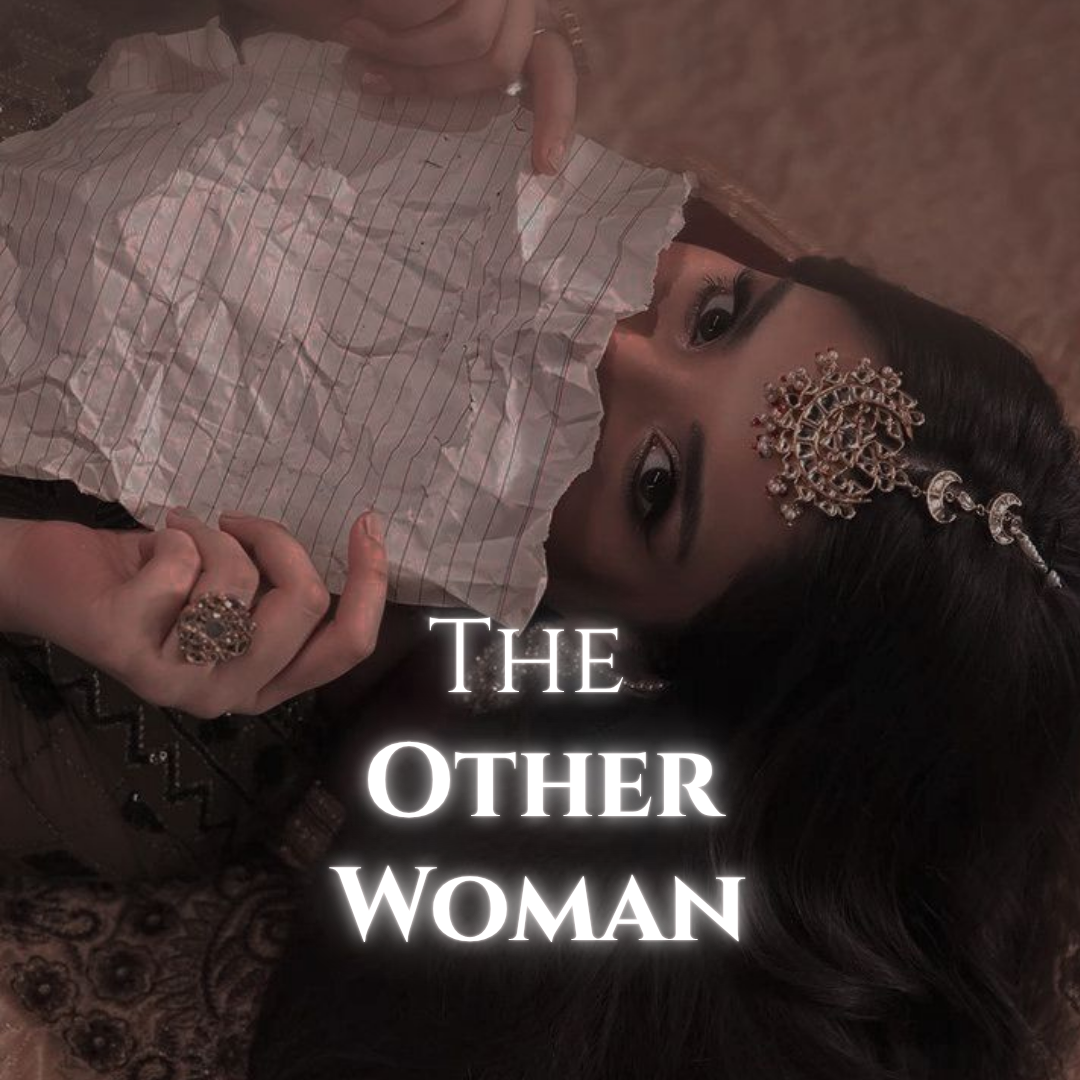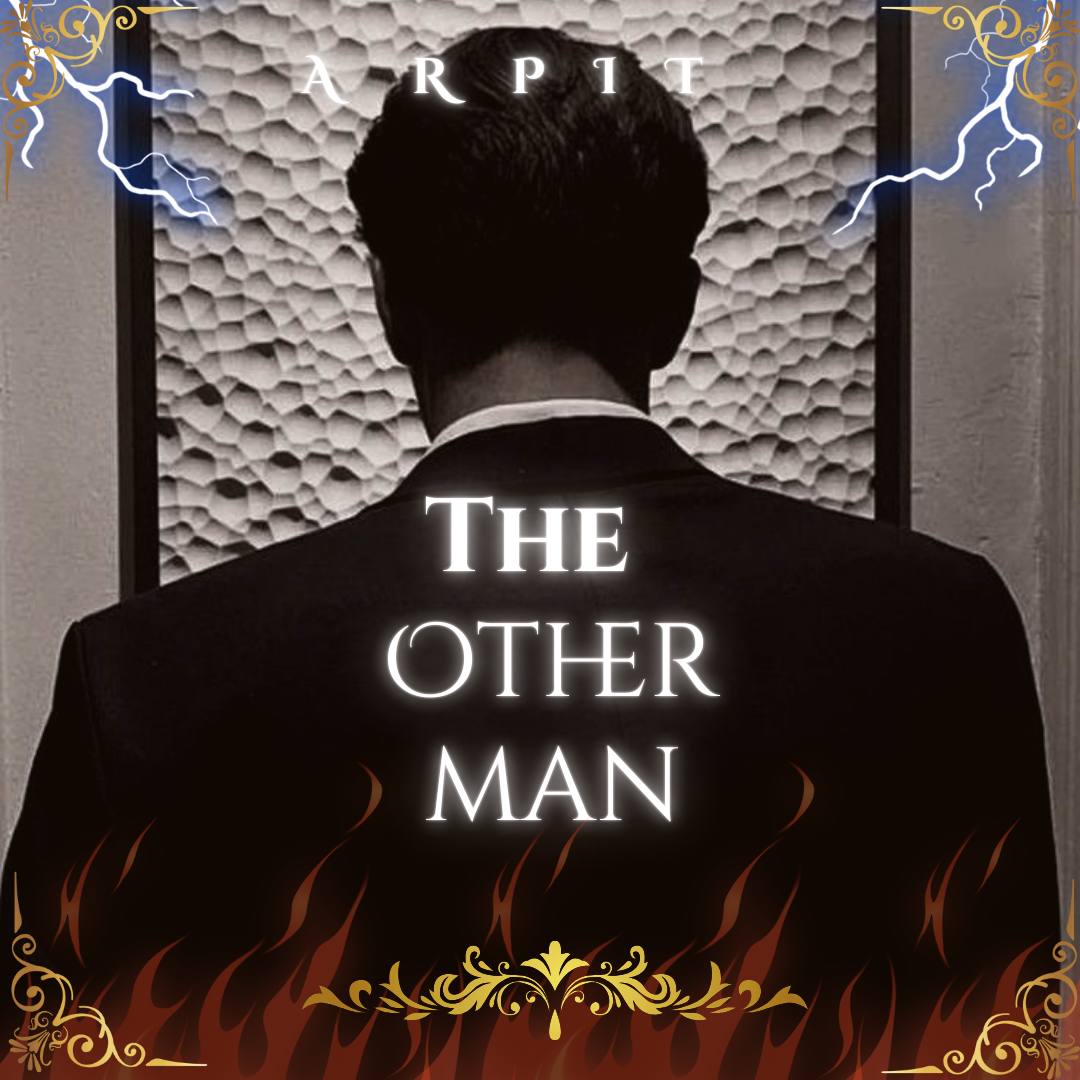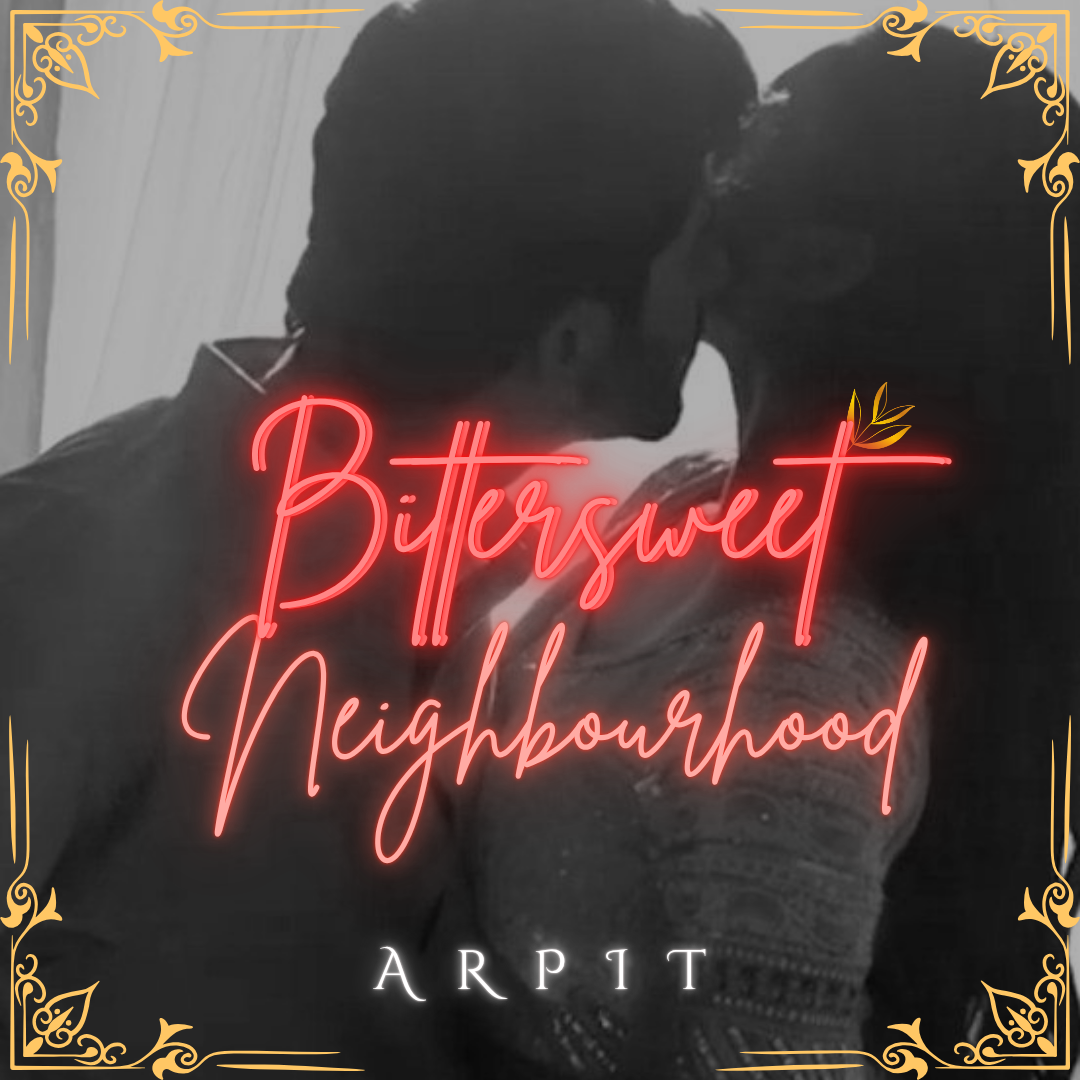
The morning sun filtered through the latticed windows of the Chandravanshi guest dressing chamber, catching on zari and diamonds, scattering light like confetti.
Kashish stood before the full-length mirror, adjusting the deep pink saree draped over her slender frame. The fabric shimmered under the soft light—rich, regal, heavy with gold-threaded embroidery that clung to its border like whispers of old tradition. It curved and framed her like it was made for her.
She looked divine.
But her eyes—despite the kohl, the mascara, the practiced poise—remained quiet.
Behind her, Malini Devi entered the room, already dressed in a deep emerald green saree adorned with delicate mirror work and intricate gold thread. The diamonds at her neck gleamed like icicles—sharp, beautiful, and cold.
“You’re ready?” Malini asked, giving her daughter-in-law a brief once-over.
Kashish turned, nodding silently.
Malini stepped closer and lifted a large velvet box from the vanity table. She opened it, revealing rows of jewelry—bangles, rings, anklets, and an elaborate diamond set. She pulled out a few pieces and handed them to Kashish.
“Wear these,” she instructed, not unkindly, but with that quiet firmness Kashish had long stopped questioning. “It’s your brother’s wedding. People will look. Let them see who you belong to. You're not just a sister of the Aswars. You’re our daughter-in-law. A Chandravanshi.”
Kashish swallowed, then nodded. “Yes, Maa sa.”
Piece by piece, she adorned herself.
The diamonds caught the light like armor. The bangles clinked as she moved—softly, like bells in a shrine. Everything about her gleamed.
But inside, she felt heavier than the saree on her shoulders.
The luxury car slid silently through the city streets, its black-tinted windows shielding them from the world outside. The Aswar Mansion loomed ahead in the distance, dressed in florals, twinkling lights, and the buzz of celebration. Music drifted faintly into the car, carried by the wind.
Malini sat beside her, her posture perfect, her expression unreadable.
Then—out of nowhere—she asked, “Did you and Tanishk talk?”
Kashish’s body stiffened, her fingers frozen mid-adjustment of her earring.
She didn't look at her mother-in-law. Just kept her gaze ahead.
“No, Maa sa. I didn’t call him. And he didn’t call me either.”
Malini’s mouth twitched slightly, though her voice remained calm.
“Still fighting?”
“We’re not fighting,” Kashish said flatly.
“We just… don’t speak.”
Malini turned her head to face her fully now, eyes narrowed slightly. “That’s worse.”
Kashish said nothing.
Malini continued, adjusting the pallu of her saree with a practiced flick. “You should have called. At least today. People will ask where he is. It’s your brother’s wedding, and your husband’s absence will be… noticed.”
Kashish finally turned to meet her eyes. “Let them notice.”
The words hung in the air, bold and uncharacteristically sharp.
For a second, Malini blinked—surprised. But she didn’t press further. Just sighed lightly and looked away, murmuring more to herself than anyone else, “When we pushed for this marriage, we thought we were doing both of you a favor.”
Kashish flinched—pushed. That word again. Like lives could be rearranged with the right pressure. And what had they built out of that pressure? A marriage of empty rooms and unanswered calls.
Outside, the car pulled through the gates of the Aswar Mansion.
The celebration was already in full swing. Music swelled, petals rained down, and a thousand eyes turned toward the arriving car.
Kashish took a deep breath and straightened her back.
A perfect daughter. A sister. A Chandravanshi daughter-in-law.
And still—utterly alone.
The soft tap of rain hit the tall windows of Tanishk’s penthouse, the city outside wrapped in a grey hush. Inside, everything was still. Sharp. Immaculate.
Tanishk sat at the edge of his dark oak desk, sleeves rolled up, glasses low on the bridge of his nose, eyes fixed on his laptop screen. His fingers moved swiftly over the keyboard as financial projections blinked across the screen—solid, dependable, unlike the people in his life.
A steaming cup of black coffee sat untouched beside him, going cold—just like the messages piling up on his phone.
Then his phone buzzed sharply, interrupting the silence.
Kavya (PA) Calling...
He stared at it for a moment, considering whether to ignore it.
But Kavya didn’t call unless it was important.
With a sigh, he slid a finger across the screen.
“Yeah?”
Her voice came through, clear and cautious. “Sir, sorry to disturb. But there’s a message I was instructed to pass on.”
Tanishk leaned back in his chair, closing his laptop. “Let me guess. It’s from my father.”
A pause.
“Yes, sir,” she confirmed.
He let out a quiet, humorless breath. “What’s it about this time? Business optics? Another last-minute board dinner?”
“No, sir. It’s… family-related,” she said slowly. “He told me to remind you that today is your brother-in-law Yash Aswar’s wedding. He said—and I quote—‘Tell him to show up. He’s expected. No excuses.’”
Tanishk rubbed his temple, his jaw locking.
Of course.
A wedding.
A mandatory appearance in the long list of duties he never signed up for.
“Sir?” Kavya said, when the silence stretched too long.
He stood and walked over to the window, gazing out over the glistening skyline.
“So I’m back to being a pawn again,” he murmured, more to himself than to her. “They want me there so the photographs look complete. So no one whispers behind their backs about the cracks.”
“Should I respond to Mr. Angad on your behalf?” she asked carefully.
“No,” he said flatly. “Don’t say anything. I’ll handle it.”
“As you wish, sir,” Kavya replied. She hesitated, then added, “Do you plan to attend?”
Tanishk didn’t answer right away. His eyes drifted to the sleek console table near the entrance, where the wedding invite still lay—unopened, gold embossing catching the soft light of the room.
He hadn’t even read it.
Didn’t need to.
The expectations were always the same.
He picked up the invite, turned it over once in his hand, then set it back down like it was something mildly offensive.
“If I show up,” he said at last, voice low, “it won’t be for them.”
And then he ended the call.
The silence returned, louder now.
Somewhere across the city, firecrackers were going off in celebration. Laughter. Music. Family.
But here, in his penthouse in the clouds, Tanishk stood alone.
Again.
And for a moment, he wondered—not whether he should go—
But whether she even wanted him to.
The music swelled as Kashish stepped out of the car.
Her heels clicked softly against the polished marble steps of the Aswar Mansion, where every column, every archway, had been swathed in fragrant jasmine and velvet drapes. Lights wrapped the estate like a second skin—flashing, glowing, beckoning.
Aswar staff rushed forward to welcome them, bowing respectfully. Cameras clicked in the distance. Family elders, distant relatives, and society's who's-who clustered in curated perfection. A few turned toward her, whispering behind manicured hands, their eyes darting from the glinting jewelry to the empty space at her side.
No Tanishk.
Not that she expected otherwise.
Malini Devi moved forward, already greeting guests with a smile practiced over decades. Kashish stayed a step behind, posture straight, smile soft—ornamental.
Just as she'd been trained to be.
“Kashish didi!”
A swarm of cousins surrounded her, pulling her into the whirlwind of festivity. Questions, compliments, demands for selfies, someone fussing over her pallu—all of it wrapped her like a wave. And she let it.
Because sometimes, pretending was easier than confronting the silence.
Across the city, Tanishk opened the drawer beside his desk.
Inside: a wristwatch she had gifted him on his 20th birthday , still nestled in its box.
He stared at the watch now, then slowly took it out. The strap was slim, leather, monogrammed subtly with his initials. Her handwriting, engraved inside the box, read:
“For all your minutes that matter. — K”
He exhaled sharply and strapped it on. Tight.
Then, without giving himself time to think, he shrugged on a navy silk bandhgala jacket, combed back his hair, and stepped into the elevator.
Halfway down the descent, he realized he was holding his breath.
At the mansion, the rituals had begun.
Her fingers tightened on her clutch.
She glanced behind her—again.
No sign of him.
Of course.
And just as the mehendi ceremony began , a slight shift occurred in the crowd. A murmur. A few gasps. Someone turned. Then another.
She followed their gaze—
And froze.
There, standing just inside the main archway, framed by the glow of chandeliers and the setting sun, was Tanishk.
In that moment, everything fell quiet.
He looked... sharp. Distant. But present.
Their eyes met.
Not for long. Not dramatically.
Just long enough.
Enough to feel the years between them.
The silence. The ache. The unfinished sentences.
He didn’t smile. Neither did she.
But she didn’t look away.
And neither did he.
Yash was the first to break through the sea of murmurs. With an easy stride and a grin tugging at the corners of his mouth, he approached Tanishk and pulled him into a brief, brotherly hug.
“Tanishk,” he said warmly, clapping his back. “Didn’t think you’d show. You’ve made a habit of ghosting these things.”
Tanishk managed a polite smile, but didn’t respond. His eyes flickered past Yash, drawn once again to the woman standing across the marble floor.
Kashish hadn’t moved.
She stood as she was—statuesque, poised, dressed like royalty. But he knew the difference between performance and peace. And there was no peace in those eyes.
Yash followed his gaze and nodded slightly, more to himself than anyone else. “Well, whatever your reasons for coming, I’m glad you’re here. It’s good for the family.”
“Is it?” Tanishk asked, voice low.
Yash gave him a measured look, but didn’t answer. He only gave a light shrug and said, “Come. Maa and Papa will want to see you before the rest of the guests mob you.”
Tanishk nodded and moved with him, each step echoing louder than it should have. He could feel the attention, the unspoken questions. Where had he been? Why hadn’t he come with her? And most of all—what did this mean?
As he passed near her, Kashish turned slightly, catching his movement in her peripheral vision. She didn’t speak, didn’t stop him. Just held her chin a little higher, fingers gently tightening on her clutch.
But her eyes flicked to his wrist.
The watch.
Her watch.
A whisper of breath caught in her throat. Barely noticeable—but there.
And somehow, in a relationship filled with silences, this single act felt louder than all the words they hadn’t said.
The scent of fresh henna filled the courtyard, mingling with rose water and the sugary aroma of mithai. Music played somewhere in the background—lively, joyful, relentless.
Kashish sat on the embroidered cushion in the center of the mehendi setup, surrounded by bright drapes, laughing cousins, and aunties with too many questions. Her saree had been swapped for a lighter lehenga—still elaborate, still regal—but looser, easier to move in. Even so, she felt trapped.
Like she couldn’t quite breathe.
Just as the artist dipped her cone and reached for Kashish’s palm, a shrill voice cut through the music.
“Aree Kashish beti!”
It was Choti Bua, her father’s younger sister, half the size of everyone and twice as loud.
“No dulhan-style mehendi for you today?” she chirped, hands clasped dramatically. “Or will you still sneak Tanishk’s name into the design? Hain? Just for old times’ sake?”
The surrounding women laughed—some genuinely, others because it was easier than confronting the sudden tension in the air.
Kashish looked up, managing a small smile. But it didn’t quite reach her eyes.
Choti Bua clicked her tongue. “Aree, don’t look so serious. Mehendi is shagun! Shaadi ka rang, hai na? Come on, girls—ask her if she still remembers her husband’s name!”
That sparked a fresh wave of teasing from her cousins.
“Oho, Didi—remember how she cried on her own mehendi?”
“Like a movie heroine!”
“Poor mehendi artist didn’t know whether to draw or offer tissues!”
Even the mehendi artist chuckled, unsure what to do with the tension lacing her client’s silence.
Kashish sat still, her hands extended, her face composed. But inside, she was screaming.
She didn’t want this attention. Not the jokes, not the forced smiles, not the memories clawing their way back to the surface.
She wanted to disappear.
The cone touched her palm, cool and deliberate. The artist began etching a delicate jaal of florals and vines. The sensation was oddly grounding—like being stitched back into place, even if only on the surface.
Kashish blinked down at the growing design, and—without warning—her mind slipped back.
To her own mehendi.
The room had smelled of jasmine and turmeric. Everyone had danced. Everyone had laughed.
Everyone but her.
Even then, she had sat just like this—dressed perfectly, painted in gold, head buzzing from the noise, but heart quietly breaking.
“Didi,” one of the artists said softly, pulling her back to the present, “should I add your husband’s name here?”
Kashish hesitated.
A breath.
And then, without looking up, she said, almost inaudibly:
“No. Just… just draw something beautiful.”
The artist nodded quietly and continued.
And Kashish watched, letting the henna dry on her hands while the ache in her chest bloomed deeper than any color ever could.
Sneak peek- Chapter 16
“Kya likhun, didi?” the artist asked again, tilting her head gently. “No name at all? Not even an initial?”
(What should i write..?)
Kashish blinked, jolted softly from the memory.
She looked at her palms—intricate, flawless, stunning.
And yet, all she could think was how beautiful the pain could look when dressed up in patterns.
“No,” she whispered. “No initials. Just… art.”










Write a comment ...